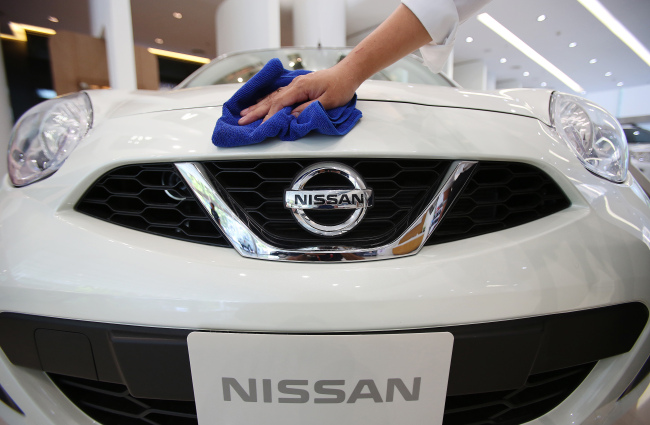Nissan Motor Co., which grabbed a global lead in electric car sales with its Leaf hatchback, wants to take the lead in self-driving vehicle technology with plans to offer such models by 2020.
“We will be able to bring multiple, affordable fully autonomous vehicles to the market by 2020,” Andy Palmer, Nissan’s executive vice president, told reporters Wednesday at a briefing in Irvine, California. Such systems mean “frustrating and unproductive commutes could become a thing of the past,” he said.
 |
A salesperson cleans the front of a Nissan Motor Co. vehicle on display at the Siam Motor Sales dealership in Bangkok. (Bloomberg) |
Just as the Yokohama, Japan-based carmaker set a goal of becoming the world’s biggest seller of battery-powered autos, Nissan wants to be a leader in the move to make cars safer by adding electronic systems capable of preventing accidents and injuries. Similarly, the systems can reduce traffic jams by rerouting vehicles, which helps curb emissions of carbon dioxide.
The company, Japan’s second-largest automaker, is designing its technology in-house, though it’s willing to work with companies including Google Inc., which has been promoting driverless car systems in recent years.
“I don’t preclude the possibility of working with Google ― or anyone else for that matter,” Palmer, who leads vehicle development, told reporters. Nissan has contacts with Google on various matters, he said, without elaborating.
Nissan has sold more than 75,000 Leaf electric vehicles worldwide since late 2010. Including alliance partner Renault SA of France, they have delivered about 100,000 electric cars.
Nissan’s North American operations are based in Franklin, Tennessee, near Nashville. (Bloomberg)








